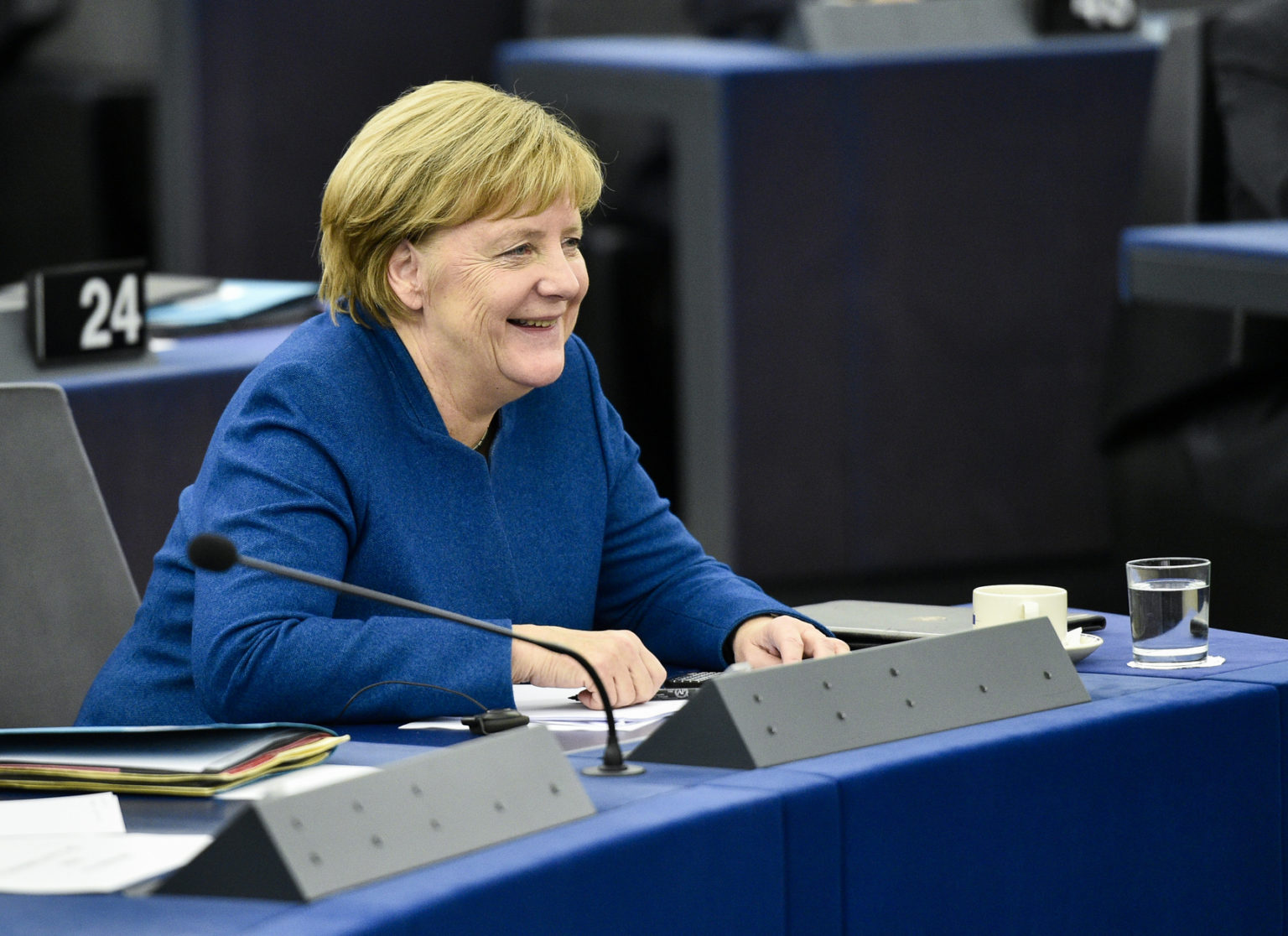Lähmung der Berliner GroKo setzt Europas Zukunft aufs Spiel

Das Koalitionschaos in Berlin hat schwerwiegende Auswirkungen auf die Europäische Politik. Deutschland verpasst es gerade in entscheidenden Prozessen wichtige Impulse zu setzen.
Besonders deutlich wird die politische Lähmung im Hinblick auf die Konferenz zur Zukunft der EU. Am Freitag (14.2.2020) will der Rat seine Position beschließen. Im aktuellsten Entwurf haben einige Regierungen ein explizites Verbot von Vertragsänderungen vorgeschlagen. Damit wäre der Handlungsspielraum der Konferenz von Anfang an sehr stark eingeschränkt. Deutschland, Frankreich und auch EU-Kommissionspräsidentin Ursula von der Leyen hatten sich bisher offen für Vertragsänderungen gezeigt.
In den aktuellen Verhandlungen im Rat verpasst Deutschland es, sich mit starker Stimme für eine ergebnisoffene Zukunftskonferenz einzusetzen. Die Agenda wird gegenwärtig von anderen Mitgliedstaaten bestimmt. Die Konferenz zur Zukunft der EU soll bereits am 9. Mai beginnen. In einer Resolution im Januar hatte sich das Europäische Parlament mit uberwatigender Mehrheit für ein starkes Konferenz-Mandat ausgesprochen, dass auch eine Änderung der Europäischen Verträge beinhaltet.
Daniel Freund, Vertreter der Grünen-Fraktion für die Konferenz zur Zukunft der EU kommentiert:
“Das Koalitionschaos in Berlin lähmt die deutsche Europapolitik. Nur wenige Monate vor der deutschen Ratspräsidentschaft ist nicht erkennbar, dass die Bundesregierung Europäische Politik gestalten will. Das Signal ist fatal. Denn die Konferenz zur Zukunft der EU ist eine einmalige Chance, Europa fit für die Herausforderungen der Zukunft zu machen. Die Groko beschäftigt sich mit sich selbst. Mit Blick auf Europa ist sie mutlos, planlos und kraftlos.”
“Die deutsche Große Koalition darf in ihrem Chaos nicht Europas Zukunft verbauen. Kanzlerin Merkel darf nicht zulassen, dass die Konferenz als zentrales Versprechen der deutschen Kommissionspräsidentin schon vor dem Start handlungsunfähig gemacht wird. Außenminister Maas darf nicht hinter das deutsch-französische Papier und den pro-europäischen Aufbruch des Koalitionsvertrags zurückfallen.”
_____
HINTERGRUND:
Deutsch-Französisches Non-Paper von November 2019
“The Conference should focus on policies and identify, by blocks of policies, the main reforms to implement as a matter of priority, setting out the types of changes to be made (legal –incl. possible treaty change, financial, organizational etc.).”
Non-Paper 22.01.2020
A.3. “With this “policy first” approach, the Conference should contribute to the development of our policies and instruments in the medium and long term so that we can better tackle current and future challenges (i.e. a vision of Europe in 10 to 20 years).”
Frage am Schluss: “Do you consider that the institutional issues should be discussed during the Conference and if so, in which format and dynamic (in parallel with the policy discussions or separately)?”
Entwurf Ratsposition 27.01.2020
§2 “The Conference should also apply the “policy first” approach and provide inspiration for further development of our policies and instruments in the medium and long term so that we can better tackle current and future challenges (i.e. a vision of Europe in 10 to 20 years). The current Union framework offers broad potential to allow these challenges to be addressed in an effective manner.”
Entwurf Ratsposition 3.02.2020
§2 “The Conference should also apply the “policy first” approach and provide inspiration for further development of our policies and instruments in the medium and long term so that we can better tackle current and future challenges (i.e. a vision of Europe in 10 to 20 years).”
Entwurf Ratsposition 10.02.2020
§2. “The Conference should also apply the “policy first” approach and provide inspiration for further development of our policies and instruments in the medium and long term so that we can better tackle current and future challenges (i.e. a vision of Europe in 10 to 20 years). The current Union framework offers broad potential to allow these challenges to be addressed in an effective manner.”
Neuer §19. “The Conference is not a Convention. It is not convened with the objective of recommending a Treaty revision as provided for in Article 48 TEU.“

